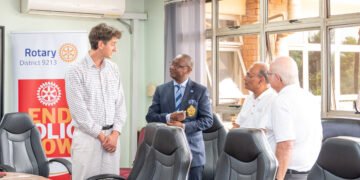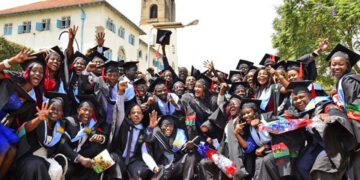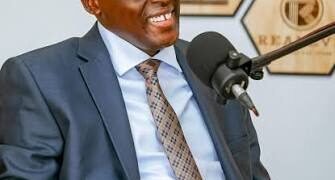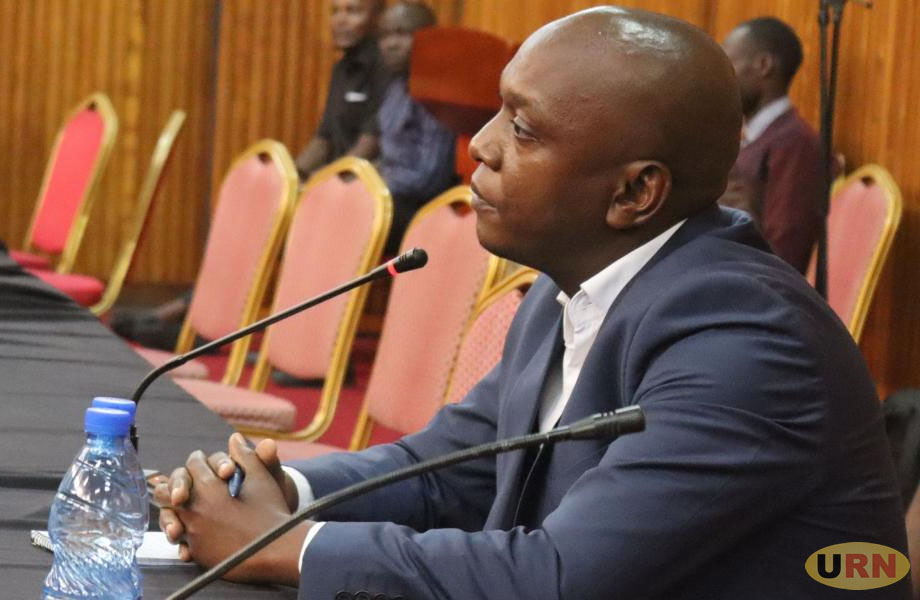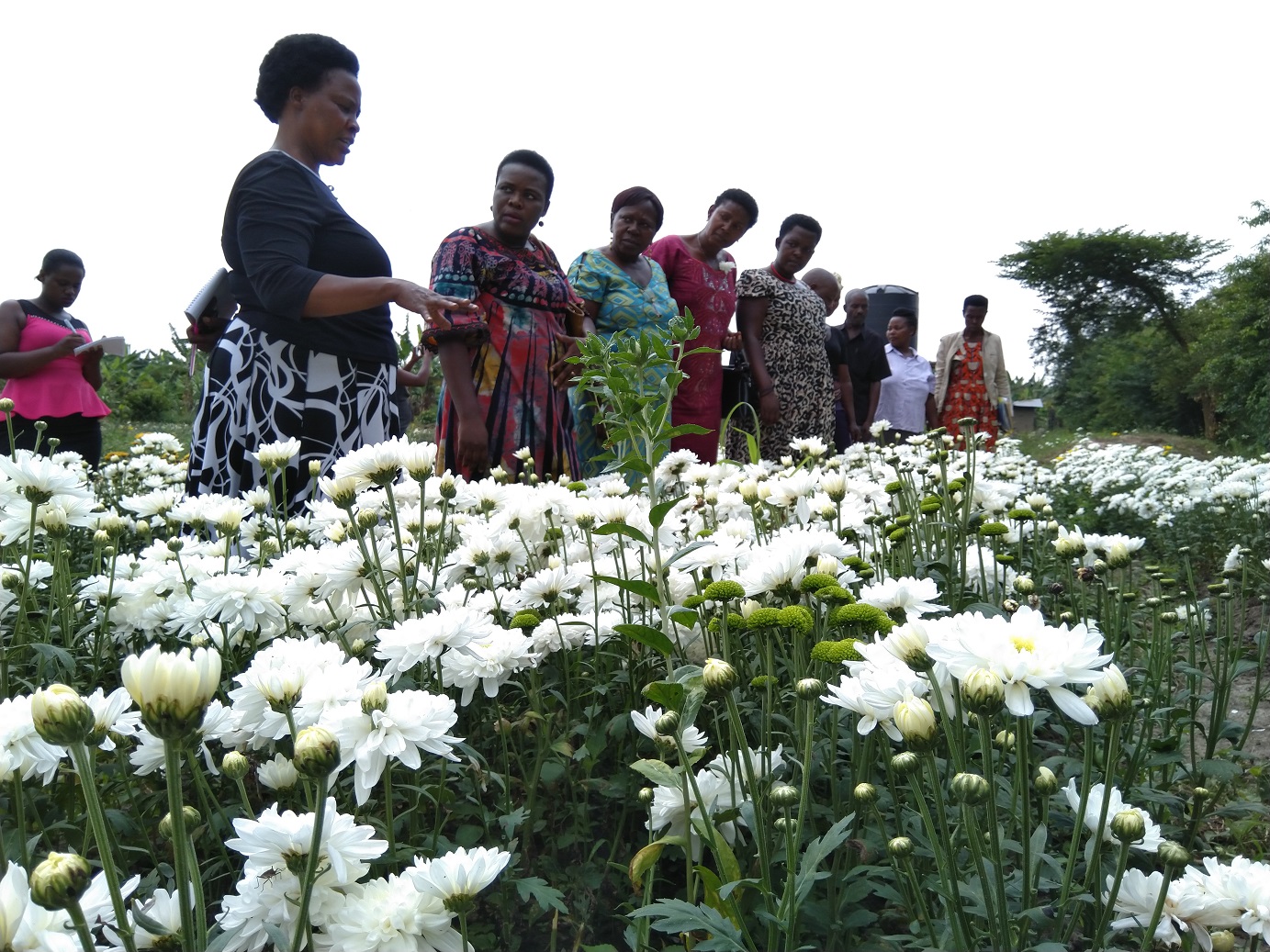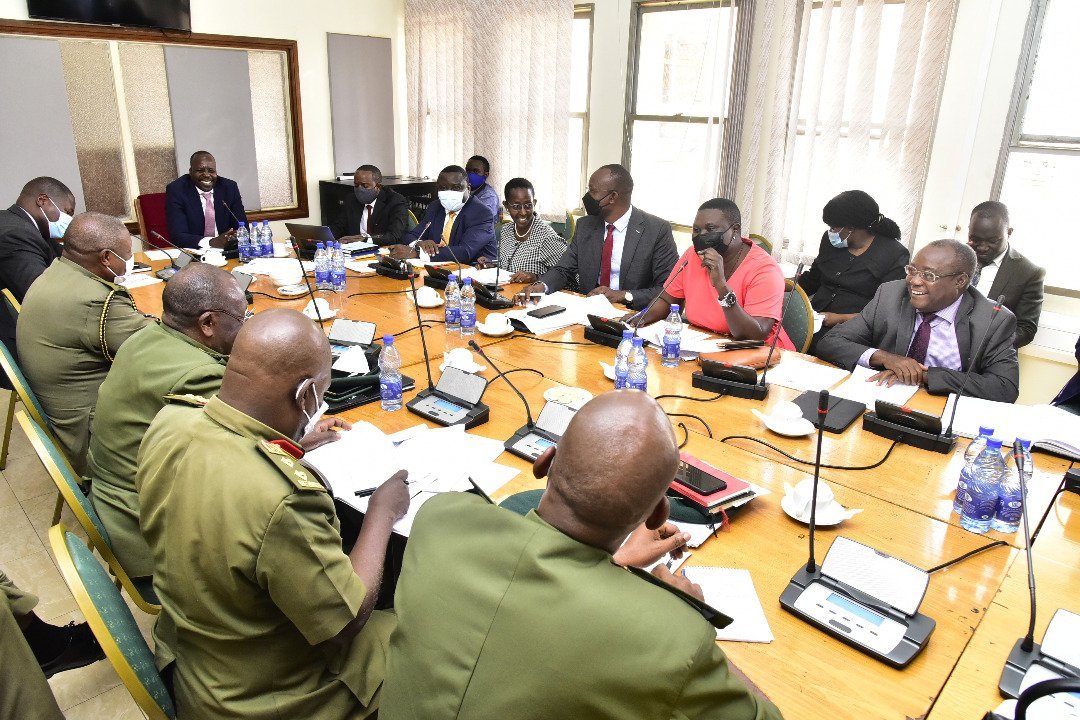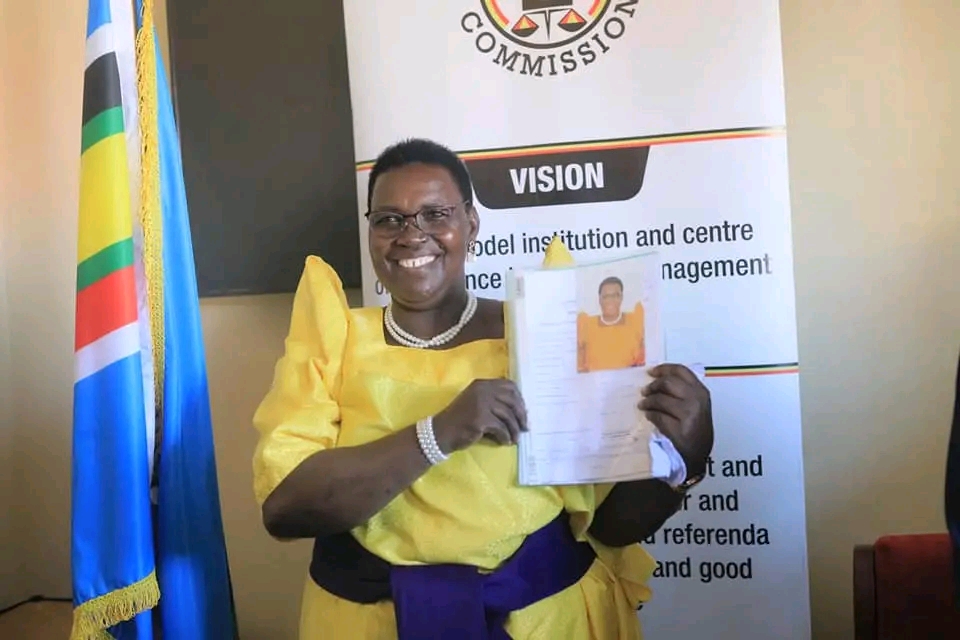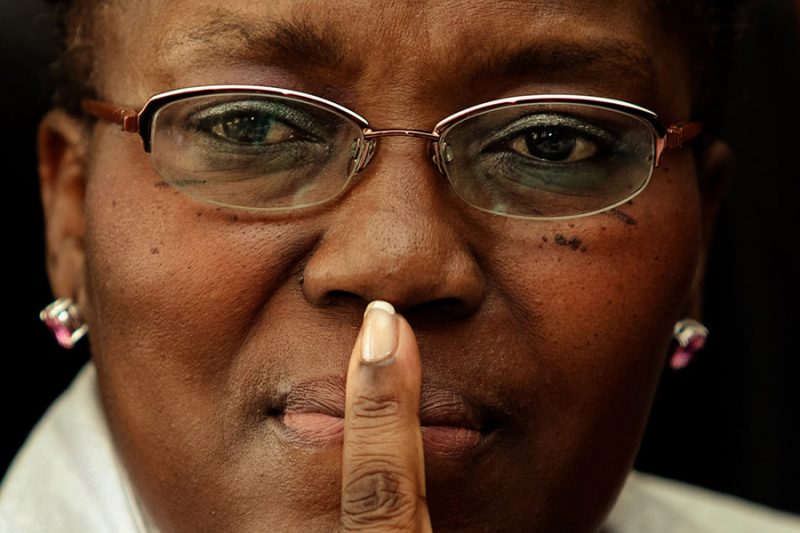President Yoweri Museveni concluded his three-day state visit to Mozambique with a visit to the northern Mozambican town of Montepuez, where the first lot of 28 Front for National Salvation (FRONASA) fighters was trained between 1976-78.
The President, who arrived in the town at midday to a rapturous welcome from the residents, first laid a wreath on a monument built in commemoration of fallen officers and men of FRELIMO, the military and political force that led Mozambique to independence from Portugal in 1975.
Thereafter, he was conducted around the military barracks that housed and trained the Ugandan fighters, by the Mozambique Minister for National Defence, Atanasio Mtumuke.
The highlight of the tour was a visit to the dormitory where the Ugandan fighters slept and taking a break between the two big trees where President Museveni and FRELIMO leader Samora Machel sat to plan their resistance.
Shortly after, the President was ushered to an open playground where he was entertained to a stucco demonstration by Mozambican soldiers.
He then decorated veterans who directly supported the Ugandan fighters while those long gone were recognized posthumously with their family members receiving their medals. Among those recognized were Juliao Chissico Francisco, a driver and Luis Manuel, a cook.
Addressing the large gathering, President Museveni explained how the journey to Montepuez in 1976 all began.
“Your brother country Uganda had a lot of political problems. To get the picture of how your brothers suffered, you are told that between 1966 to 1986, a total of 800,000 Ugandans had died because of the governments’ killing them,” said the President. “The economy had collapsed and over 500,000 Ugandans were living in exile.”
He continued, “So, when Comrade Samora and Mwalimu Julius Nyerere agreed to help us in 1971, it was to rescue your Ugandan brothers and sisters who had no hope anymore.
We made several attempts between 1971-74 to dislodge Amin but we failed. Like Mao Tse Tung says, making a revolution is not a tea party.”
He noted that after Mozambique gained independence in 1975 from the Portuguese, Samora Machel, a year later, on the intercession of Mwalimu Nyerere, offered FRONASA a training base in Montepuez.
“This (square) was our training centre. I was staying in a house near here while the youth were staying in the dormitory. This group of 28 turned out to be more useful than the others who we had been trying to train since 1971. They formed the nucleus of our army,” said the President, who told his audience that by the time Amin fell in April 1979, the Montepuez group had recruited and trained up to 9,000 other fighters.
“Although the politics of Uganda did not stabilize immediately, this nucleus made us autonomous in military affairs. Thereafter, we could do things by ourselves. So, when you hear that the UPDF is in Somalia or Central African Republic and doing a good job, know that the nucleus was here in Montepuez,” he said, to rousing cheers from the crowd.
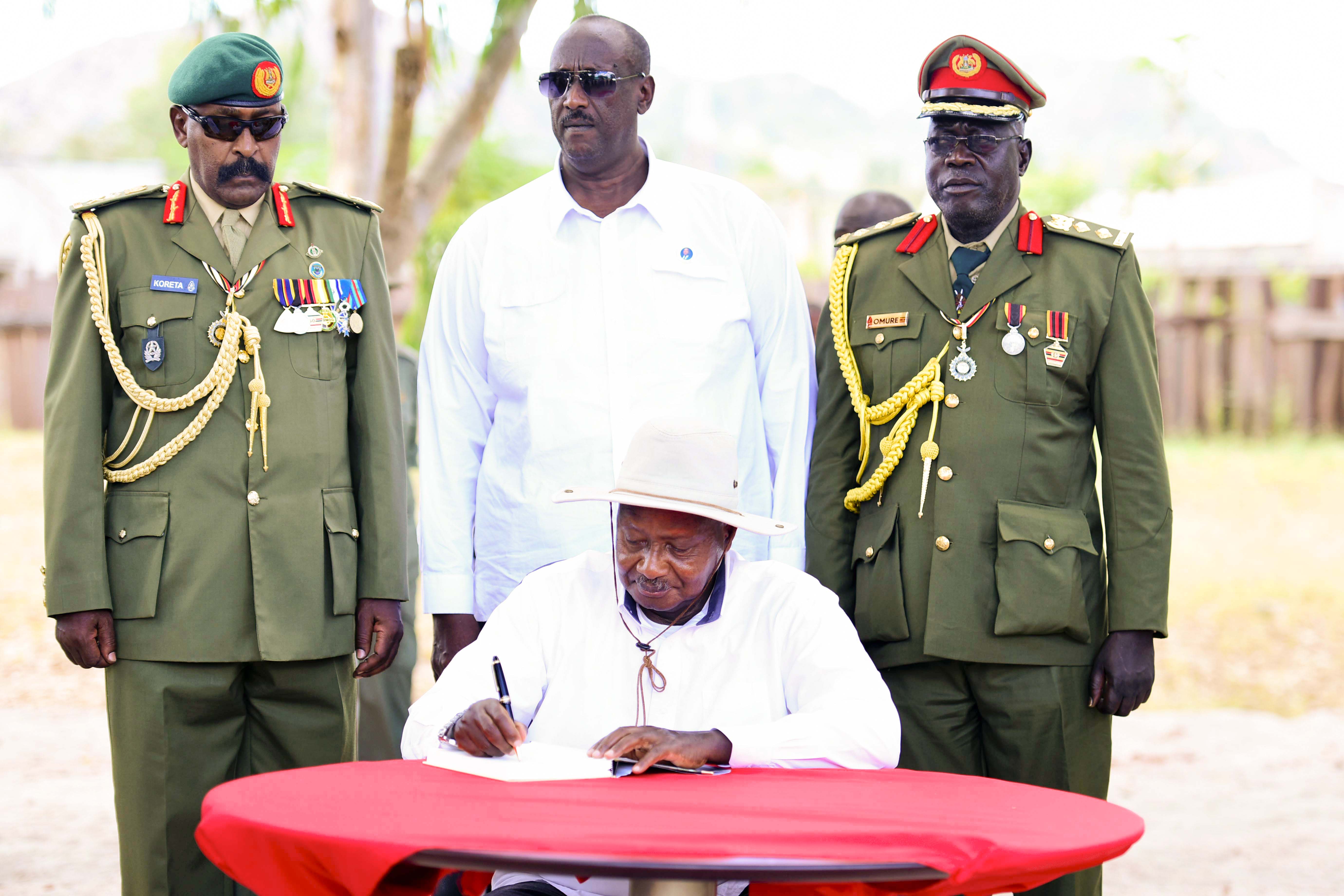
President Museveni said he had discussed and sought permission from President Jacinto Nyusi to allow the Uganda government set up a technical school in Montepuez as a token of appreciation. He added that a dormitory or lecture theatre would be built inside the barracks to solidify the two countries’ brotherhood.
Noting that only four of the 28 fighters were alive, whom he introduced to the gathering, President Museveni warned the youths and young soldiers against risky lifestyles, saying most of their comrades did not actually die due to war but risky behaviour.
Those introduced were Gen. Caleb Akandwanaho aka Salim Saleh, a Senior Presidential Adviser and Coordinator of the Operation Wealth Creation (OWC) Programme, Lt. Gen. Ivan Koreta, an Army MP and Col Bosco Omure, who oversees Special Duties in Northern Uganda in the President’s Office and also coordinates OWC in Lango Sub-Region.
The President revealed that together with his three colleagues, they had decided to initiate a poultry project for the Montepuez veterans to boost their incomes. The project, said Mr. Museveni, would be integrated with a crop farming initiative to manage costs. He offered $26,000 (about Shs90m) to kick-start the project.
“Mozambican veterans showed us how to defeat the Portuguese. In Uganda, we veterans showed how to defeat bad governments. We must then show our people how to get out of poverty. Revolutionaries must show collaborators how to get out of poverty,” he concluded.
Gifts and honours
Host Defence Minister, Mtumuke, in his remarks thanked President Museveni for remembering his revolutionary roots and retracing them. He announced that the barracks President Museveni had visited would be preserved as a “Museveni Museum” to promote solidarity of the two countries’ armies.
Earlier, Ms. Etelvina Fevereiro, an Administrator of Cabo Delgado Province and Mr. Antonio Domingos Mapure, representing the region’s Permanent Secretary, awarded President Museveni gifts including a walking stick, a hat, while Mrs. Natasha Karugire was given a blouse.
Later, President Museveni, whose Montepuez tour was the final activity of his state visit, was seen off at Pemba International Airport by the host Agriculture Minister, Mr. Francisco Marrule and a host of Ugandan officials including Veterans’ Affairs Minister, Bright Rwamirama and Ambassador Richard Kabonero.



